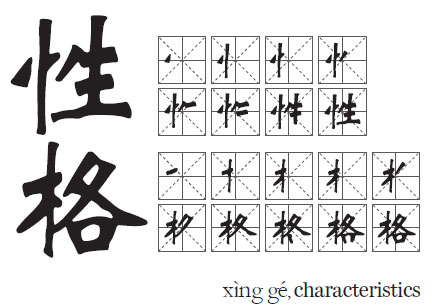Views of the first China watcher

The 19th-century musings of missionary Arthur Henderson Smith might be dismissed as a product of their time, but some are insightful
In the 1930s, Shanghai business executive Tony Keswick would leave a large, leather-bound book on his desk entitled Everything I Know About China. Curious visitors would open the book to see nothing but 200 blank pages. Unlike many foreigners, Keswick, it seems, was straight up about his inability to fathom China.
For many observers, China and the Chinese people have long been viewed as a complex puzzle; the sheer size of the nation alongside its confusing and contradictory nature prove it impossible to solve, but that doesn't stop people trying.


Oh, how they try, and try, and try. Who hasn't lived in China for a few months and at least been tempted to theorize as to why it is like it is? The size of the task has even spawned its own industry of amateurs and professionals alike: China watchers. Why do we not speak of England watchers, Argentina watchers or Kyrgyzstan watchers? Is China really so interesting that it needs a whole industry of politicians, missionaries, diplomats, soldiers, journalists, English teachers, captains of industry, and god knows who else to try to unravel the mystery? The answer, of course, is simple: yes, it is.
Arthur Henderson Smith was but one of the many men who devoted a large part of his life to an attempt to understand and explain China to the world, perhaps most famously in his book, Chinese Characteristics.
An American missionary, he sailed to China with his wife in 1872 and remained there for 54 years. Now, if somebody is going to tell you at length about the Chinese, their habits, beliefs and thinking, all based on anecdotal evidence, personal experience and a little reading (and that's exactly what this book does), I would want to be sure it that was somebody who had spent a lot of time there, and it is reasonable to give Smith credit where it is due. He certainly served his time.
If you read a book for sparkling prose and dazzling sentences, then Chinese Characteristics might not be for you. One of the reasons Chinese Characteristics is such a pain to read is its style. Smith uses the long, circumlocutory sentences that were so typical of the Victorian era. There is no sense of caricature or amusement, and instead we get a dry, high-minded tone, all of which is quite understandable coming from a devout missionary who believed in being scientific, but that doesn't make it exactly a fun read.
Any book that attempts to sum up and make sweeping generalizations about a billion odd people is likely to come in for a fair amount of criticism. Now to be fair to Smith, he wrote Chinese Characteristics back in 1894 when the Chinese population had barely hit the piffling 300 million mark, though that hardly makes his task any easier.
Still, he was aware enough of potential criticism from the outset, and sensibly says in his opening paragraph: "No single individual, whatever the extent of his knowledge, could by any possibility know the whole truth about the Chinese."
So, later in the book, when he comes off like he knows everything and makes several broad generalizations to boot (he does this a lot), we ought to forgive him. In many ways, that's the gig with writing a book like this. The Chinese become a curious object of study, and the writer occasionally comes off as if he were observing a baffling species of animal as opposed to mere human beings.
This all begs the question of whether Smith's observations are any good. On reading the book, my initial instinct was to say of course not, because so much of his writing comes across as, well, a bit racist: "The first impression which a stranger receives of the Chinese is that of uniformity. Their physiognomy appears to be all of one type, they all seem to be clad in one perpetual blue ... "
Added to this, most of his observations, in the absence of any hard data, are based on what he read in a newspaper, an anecdote of a friend, or something he saw on his morning walk. It never feels like enough to substantiate his rather grandiose conclusions. So you can imagine the feeling you get when you are reading him and you think a fair whack of what he is saying seems accurate. The "that's a pretty racist thing to say, but he has a point," thought pattern is an awkward one to say the least.
But at least Smith has the benefit of being of his time. He was influenced by the now widely discredited eugenics ideas that where coming to fruition at the time. Just as he was always likely to use terms which are now seen as disparaging (negro, coolie, etc).
To get a feeling for what he thinks are the key components of the Chinese, it is worth starting by having a look at the main chapter titles to at least see if he is going down the right path:
The Disregard of Time; The Disregard of Accuracy; The Talent for Misunderstanding; The Talent For Indirection; Flexible Inflexibility; Intellectual Turbidity; The Absence of Nerves; Contempt for Foreigners; The Absence of Public Spirit; Conservatism; Indifference to Comfort and Convenience; Physical Vitality; Patience and Perseverance; Content and Cheerfulness; Filial Piety, Benevolence; The Absence of Sympathy; Mutual Responsibility and Respect for Law; Mutual Suspicion; The Absence of Sincerity; Polytheism, Pantheism, and Atheism.
There is a clear weighting toward negatives when looking at these "characteristics", but regardless of what you think of Smith's opinions, it would seem that more than a few of these chapters are worth discussion.
Many foreigners who have lived in China for any length of time (particularly the longer-term ones) start to develop a set of oft repeated gripes about "the Chinese". Some people deal with these cheerfully and locate such issues within a sociological and cultural context, seeking to understand; others become furious and whiny and aren't much fun to be around.
It is also worth noting here that a lot of these gripes, observations, call them what you will, often infuriate the Chinese as much as the foreigners themselves, often more so. One of the key differences is that being more aware of the culture, the Chinese are able to make allowances and understandings for such things. Though there are many things that appear illogical in Chinese society, Smith points out that it is precisely because the Chinese are aware of these fallacies that it leaves them in a much better situation to deal with them: "The Chinese master knows perfectly well that his commands will be ignored in various ways, but he anticipates this inevitable result as one might set aside a reserve for bad debts or allow a margin for friction in mechanics."
These annoyances and irritations are almost too numerous to mention, but Smith covers a lot of them.
The book is not all about anger and irritation, though, and sometimes it prefers to just marvel at a skill that the Chinese, for whatever reason, appear to have in a supernatural abundance, such as the ability to grab forty winks anywhere and everywhere at the drop of a hat: "Generally speaking, he (the Chinese) is able to sleep anywhere. None of this trifling disturbances which drive us to despair annoy him. With a brick for pillow, he can lie down on his bed of stalks or mudbricks or rattan and sleep the sleep of the just, with no reference to the rest of creation."
Though in large parts of the book Smith is guilty of being patronizing, and of thinking he can educate and civilize the Chinese, he is more than aware that, historically speaking, foreign nations treated the Chinese nation atrociously, though he puts it more delicately: "During much of the greater part of time there was very little in the conduct of Western nations in its dealings with the Chinese of which we have any reason to be proud."
Courtesy of The World of Chinese, www.theworldofchinese.com
The World of Chinese
(China Daily European Weekly 04/15/2016 page23)
Today's Top News
- Takaichi must stop rubbing salt in wounds, retract Taiwan remarks
- Millions vie for civil service jobs
- Chinese landmark trade corridor handles over 5m TEUs
- China holds first national civil service exam since raising eligibility age cap
- Xi's article on CPC self-reform to be published
- Xi stresses improving long-term mechanisms for cyberspace governance






























